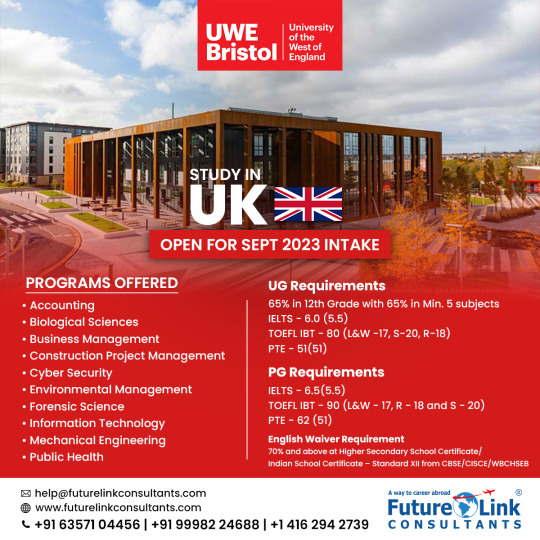#masters scholarships for uk students
Explore tagged Tumblr posts
Text
Top Scholarships for Master’s Programs in the UK: A Guide for International Students
Pursuing a Master’s degree in the UK can be a life-changing experience, but the cost can be daunting. Scholarships can significantly reduce financial burdens and open doors to world-class education. Here’s a comprehensive guide to the best Scholarships for Masters in UK.

Scholarships for Master’s programs in the UK are a gateway to affordable world-class education. By researching and applying strategically, you can secure funding that makes your dream of studying in the UK a reality. Take the first step today and unlock your potential!
#scholarships for international students#college#onlinedegree#university#coaching center#jamboree#india#masters degree uk#degree#learning
0 notes
Text
A Comprehensive Guide to UK Government Scholarships for International Students
Studying in the United Kingdom is an exciting opportunity for international students, but the cost of tuition, living expenses, and travel can often be a significant hurdle. Fortunately, UK government scholarships offer a way to make this dream a reality for many students. In this comprehensive guide, we will explore the various UK government scholarships available to international students, the eligibility criteria, the application process, and the benefits these scholarships offer. If you're interested in learning more about UK government scholarships, check out this University ranking in UK.
Types of UK Government Scholarships for International Students
The UK government provides several scholarships to international students, each with its own set of benefits and requirements. These scholarships aim to attract talented students from around the world and support their educational journey in the UK. Here are some of the most popular options:
Chevening Scholarships The Chevening Scholarship is the UK government's global scholarship program, offering full financial support for students to pursue a one-year master's degree at any UK university. This prestigious scholarship is open to students from over 160 countries. It covers tuition fees, travel costs, and a monthly stipend, making it an excellent opportunity for those looking to study in the UK without financial stress.
Commonwealth Scholarships The Commonwealth Scholarship Commission (CSC) offers scholarships to students from Commonwealth countries. These scholarships cover full tuition fees, airfare, and a stipend for living costs. The Commonwealth Scholarship is available for both master's and PhD programs, and it aims to promote international development by educating future leaders.
The GREAT Scholarship The GREAT Scholarship is a joint initiative between the UK government and universities across the UK, offering a range of scholarships for students from China, India, Indonesia, Malaysia, Thailand, and other countries. This scholarship offers a partial financial contribution towards tuition fees, and it focuses on supporting students studying subjects related to sustainable development and innovation.
The Marshall Scholarship Although not directly funded by the UK government, the Marshall Scholarship is a prestigious program that provides funding for US students to pursue postgraduate degrees at any UK university. It covers tuition fees, living expenses, and travel costs, and it aims to foster strong ties between the UK and the US.

Eligibility Criteria for UK Government Scholarships
Each UK government scholarship has its own eligibility criteria, but there are some general guidelines that most programs share:
Academic Excellence: Most scholarships require students to have a strong academic background. This includes having excellent grades in relevant subjects and demonstrating academic potential.
Nationality: Some scholarships are available only to students from specific countries or regions. For instance, Chevening Scholarships are open to students from over 160 countries, while Commonwealth Scholarships are aimed at students from Commonwealth nations.
Work Experience: Some scholarships, such as Chevening, also require applicants to have relevant work experience. This is usually 2-3 years of professional experience, although the specifics may vary depending on the scholarship.
English Language Proficiency: Since courses in the UK are taught in English, most scholarships require proof of English language proficiency through tests like IELTS or TOEFL.
Program Level: Certain scholarships may be restricted to specific academic levels. For example, Chevening and Commonwealth Scholarships are available for master's and PhD students, whereas the GREAT Scholarship focuses on undergraduate and postgraduate studies.
The Application Process for UK Government Scholarships
The application process for UK government scholarships can be competitive, but with careful planning, you can maximize your chances of success. Here’s a general guide to help you:
Research Available Scholarships: Before applying, make sure you research all available UK government scholarships to determine which one suits your academic background, career goals, and nationality.
Prepare Required Documents: Most scholarships require academic transcripts, a statement of purpose, letters of recommendation, and proof of English language proficiency. Make sure all your documents are in order before applying.
Apply Through the Scholarship Portal: Each scholarship has its own application portal. For example, Chevening Scholarships have an online application system that requires you to submit your personal details, academic background, and work experience. Similarly, Commonwealth Scholarships have a separate portal.
Write a Strong Personal Statement: Your personal statement plays a crucial role in the selection process. This is where you can showcase your academic achievements, career goals, and how the scholarship will help you achieve them.
Submit the Application: After gathering all your documents and completing the online application, make sure to double-check everything before submission. Some scholarships have specific deadlines, so be sure to submit your application well in advance.

Benefits of UK Government Scholarships
Receiving a UK government scholarship comes with several benefits that go beyond financial assistance. Here are some of the key advantages:
Full Financial Support: Many UK government scholarships, such as Chevening and Commonwealth Scholarships, offer full financial coverage, including tuition fees, living expenses, and travel costs. This allows you to focus entirely on your studies without worrying about finances.
Access to Prestigious Universities: UK government scholarships provide opportunities to study at some of the best universities in the world, such as Oxford, Cambridge, and Imperial College London.
Networking Opportunities: As a scholarship recipient, you will be part of a global network of scholars, professionals, and policymakers. This opens doors to valuable networking opportunities, mentorship, and career development.
Enhancing Career Prospects: UK universities are known for their academic excellence, and graduating with a UK degree is highly respected globally. Scholarship recipients often have an edge when it comes to securing competitive jobs in their home country or abroad.
Conclusion: Making Studying in the UK More Accessible
UK government scholarships are an excellent way for international students to gain access to world-class education without the financial burden. Whether it’s the Chevening Scholarship, Commonwealth Scholarship, or GREAT Scholarship, there is a range of opportunities to suit different academic backgrounds and career goals. These scholarships not only provide financial support but also open doors to personal and professional growth in a global setting. To learn more about UK government scholarships and explore your options, visit University ranking in UK.
#UK Government Scholarships#Scholarships for International Students#Study in the UK#Chevening Scholarships#Commonwealth Scholarships#GREAT Scholarship#UK Scholarships for Students#International Scholarships in the UK#Scholarships for Master's Students#UK Study Funding#Study Abroad Scholarships#UK University Scholarships#Financial Aid for International Students#UK Education Scholarships#Scholarships for International Postgraduate Students
0 notes
Text
ritish Aziz Foundation Offers Fully Funded Masters Scholarship to Muslim Students in the UK 2025
The Aziz Foundation Masters Scholarships 2025 is a distinguished program that provides qualified British Muslims studying for master’s degrees in the UK with 100% tuition price assistance. The goal of this program is to empower people who are enthusiastic about social change, effective advocacy, and community development. It helps people progress in industries like the arts, law, media, policy,…
0 notes
Text
Overseas Education Consultants for Masters in UK after graduation or 12th
Let us help you study in the UK with step by step guidance and Overseas free education counselling. Future link Consultants is a INDIA based company specializing in overseas education services established in 2000. UK is the second most preferred overseas education destination in the world, only next to the USA.

#Study in UK after 12th#study in UK after graduation#Overseas Education Consultants For UK#UK Education Consultants#UK Education Consultancy#study masters in UK#UK Student Visa#UK student visa consultants#Study in UK with scholarship#UK Study Visa Consultants#Study in UK for Indian Students#Best UK Study Consultants
0 notes
Text
#overseas education#study in australia#study abroad#scholarships in australia#study abroad australia#study in canada#scholarship in canada#ireland universities#studying in ireland#study in uk#master in uk#education for usa#study in usa indian students#study abroad to usa
0 notes
Text
Assistance for Studying in the UK | Best Universities in UK for masters
UKScholar is an expert in suggesting best universities in UK for masters and also helping Indian students for studying in the UK. Are you concerned that your opportunities for studying in the UK are limited? You no longer need to worry since UK Scholar has you covered. Over the past 20 years, UKScholar, a reputable and knowledgeable education consultancy, has assisted students in their desire to study in the UK.
0 notes
Note
Hi Carina! Don’t know if this is too random to ask but what is your experience being a student in London? I am thinking about doing my master’s there but as an international student and I really don’t know what to expect.
hi there lovely!! not too random at all, i'm happy to help<33
keep in mind now that i have wanted to study in london since i was literally 6 years old, so my experience is coloured by the naivety of having a dream lmao. additionally, i'm from norway, which isn't that far away and has a similar culture + everyone here is fluent in english, so the change isn't that drastic for me.
i would say studying in london is fucking great IF:
you want the full study experience
you are getting into an industry/sector where london is relevant (e.g. i'm studying history and there are loads of history in london to be studied + the uk are very influential in the discipline)
you enjoy a rigorous education
you LOVE to study and enjoy the city life
the last point is particularly important, because the biggest downside to studying in london is the economic one – do not underestimate how expensive tuition and housing is for an international student. you HAVE to love your master's, writing essays, deadlines, studying and being in london, if not it will not be worth it.
if you don't really like studying but feel like you should/have to, or if you don't really enjoy the big city but want to get away from home, then london is not for you. there are loads of cheaper, quieter places to study that still give you the study abroad feel and distance. on the other hand, if you are passionate and dedicated, then most universities in london (in my experience) will truly foster that like no other. i feel like my ambition is fuelled and supported thoroughly by my uni, and to anyone who share my mindset of adoring what you do and loving life in a big hustling city, then it is such a great choice.
in terms of what to expect, here are some things off the top of my head that you might not be informed about:
everything is very systemised here – you have a personal tutor that sees you through the term, you have a personalised online portal that you access and hand in everything through, you have very specific forms to fill out in cases of disability, illness or mitigating circumstances
you can get a lot through the uni, though you should usually apply early (talking dorms, scholarships, gym memberships, disability help, a general practitioner, a therapist, etc.)
some degrees have a majority of home students while others have a majority of international students, and it can be beneficial to figure out what the case is for your master's
there is quite a lot of pub life going on, but in my experience there isn't really any pressure to drink. though, going out will make making friends easier, but most people are very willing to subsitute that with coffee or study dates
most professors are super passionate about what they do and are willing to take you on for extra support/tutoring
most graduate teaching assistants are tired beyond belief and will not be much help lmao (with exceptions, @ tom the light of my life)
i have no idea if this was too much or too little compared with what you wanted to know. please let me know (through asks or dms) if you have any more questions! i am more than happy to talk about it 🫂
9 notes
·
View notes
Text
Thinking of switching careers to IT? ☕

This guide discusses the learning options: bootcamps, schools, or self-learning
Note: this guide may be a bit lengthy, so I suggest taking your time to read it thoroughly. Just a heads up, I haven't included specific program names or detailed IT roles info here. Instead, the focus is on guiding you to make a well-informed decision for your career transition. So, grab a cup of coffee, sit back, and dive into the guide at your own pace ☕
So which option is good? Any of those options is fine. It's all about what works the best for you. Consider this: your ultimate goal is to secure a job once you've successfully completed your IT studies, right? From the perspective of hiring managers and recruiters, what they care about is your resume, experience, and skills. They will assess whether you are capable of fulfilling the job requirements. Your attitude and personality can also play a role in their decision-making process, which is a topic we can explore another time.
When it comes to switching careers, acquiring new skills is a logical step. Now, the question is: what is your preferred learning style? In the STEM field (specifically IT, in this case), it is so important to be able to consume information effectively as you study IT!
If you find that you learn best with a structured schedule, where you don't have to rely solely on self-discipline, then enrolling in a bootcamp or school is recommended. Note: Even during your studies at a bootcamp or school, you still will need to engage in self-teaching. It's a *MUST*, good practice to maintain this mindset even after you secure an IT job, especially if it involves a lot of developing or deploying. [ Bootcamps & Schools Options ]
There are a few factors to consider: - Costs Generally, bootcamps are more affordable than traditional schools. However, both options may offer scholarships, so it's worth exploring those opportunities. Look into third-party scholarships that may be available. If you have a disability and reside in the US, it would be beneficial to speak with a counselor from Vocational Rehabilitation. Non-profit organizations can also provide support and assistance to individuals interested in returning to education. Studying abroad is another option worth considering. Personally, I chose to study abroad in the UK due to the significantly more affordable tuition fees compared to the US, and because I had a desire to obtain a master's degree in another country. - Instructors' teaching styles It's important to note that not all IT instructors excel at effectively communicating with new IT students. To avoid encountering this issue, do some detective work. Find out who will be teaching you and check out their lectures. Don't hesitate to ask the program manager if you can meet your potential lecturer (ideally before making a decision). Prepare a list of questions to ask your potential lecturer during the meeting. Pay attention to how they explain concepts. If their technical jargon is difficult to understand, they may not be the right instructor for you. Remember, this doesn't reflect your intelligence. It's a matter of their self-awareness. I strongly advise against choosing this kind of an instructor from my experience. - Lessons There are numerous IT job types available, and in a bootcamp, you may not have the opportunity to explore all of them. Bootcamps often focus on specialized programs, sometimes even covering less popular technologies (yes, this is definitely a concern). So you should research IT fields, and once, you've decided on a specific field, take the time to research job titles and similar roles on LinkedIn. Pay close attention to job descriptions and requirements. Create a list of the high-demand skills for those positions. This will help you narrow down your choices when selecting a bootcamp program or school. Look for programs that teach the skills you need based on your research. [ Self-Teaching Option ] You are your own trainer, and you get to design your own personalized learning experience. This option is great if you do not have the luxury to pay out of pocket for a program. It is absolutely not looked down upon by employers. In fact, it is considered one of the essential job skills that employers typically look for in a job applicant. To make a solid entry into the IT field, I highly recommend obtaining certifications and undertaking project-based learning. It's important to focus on certifications and projects that align with the specific roles you aspire to have. Take the time to explore different fields within IT to discover your interests, and then compile a list of relevant learning materials or bookmark tutorial videos. Please be sure to verify that the resources you choose are up to date and not outdated, as IT is always evolving. "Wait, but what about a degree?" This approach is really just aimed at fulfilling the job requirements. Many IT candidates have successfully passed interviews without possessing a degree. Many hiring managers prioritize your ability to learn and apply the required skills. Showcasing your projects on your resume or demonstrating your skills during a technical interview holds more significance. Even if you don't possess the exact skills they're seeking, emphasizing your transferable skills will show interviewers that you are capable of learning and adapting.
#coding#programming#career change#career switch#codeblr#studyblr#education#bootcamp#bootcamps#school#schools#IT career#IT jobs#if you have questions#don't be hesitant to ask me!#swan
95 notes
·
View notes
Note
hi mr.haitch!
as someone who's interested in academia, do you think you can speak a bit about your experiences and journey? it's something i've had my eye on for a bit but honestly don't even know where to begin and idk if i'm just having a mini life crisis because i'm feeling unfulfilled in my current field.
I think I've spoken about this before, but I'll do it again. Please note that I am currently not in academia at present, although I do have plans to return. Currently I'm teaching functional skills in English and maths to kids in their late teens (many of them with severe emotional, behavioural, or learning disorders) so this will be more of a retrospective.
(Be warned, it's long)
Let's get one thing very clear: I was a bad student and my road into academia is and remains crooked. I had bad grades in highschool, an appalling attendance record, and spent a great deal of highschool in detention. It is a miracle that I finished highschool, and a further miracle that I was accepted by a college, and fluked through my A-levels.
I never paid attention in class unless it was something I cared about. Homework was a mythical concept, I never participated, rarely engaged, and generally treated school with disdain.
And I didn't get better until I was in my twenties.
Some of it was anxiety, a lot of it was arrogance.
So fast forward through my undergrad years where I oscillated wildly between workaholic frenzy (political philosophy, existentialism, philosophy of religion) to staunch absenteeism (philosophy of language, socratic philosophy). In my final year things kind of clicked, I knuckled down, got into a few fights with my lecturers, forced my grades up, and came out with a good enough grade to get onto a masters course.
This was largely in thanks to my writing, which I'd become increasingly dedicated to, completing and submitting my first (and thankfully unpublished novel) in the process. During my master's I revelled in the greater degree of independence, how I could direct and engage with the material in my own way, and how it connected with my passions (creative writing). I still had an arrogant moment, failed to prepare for an assignment and failed it. The failure capped my overall grade at a pass which sank any hope for a scholarship.
Dejected and pissed off, I then took the first job that came my way and gave up on academia. I languished in the service industry for four years and thought I'd amount to nothing more. Some political nonsense happened towards the end, I pushed back against the wrong people who promptly tried to fire me under false (and illegal) pretenses.
Haitch pushed me to look into doing my PHD again. I applied, teaching out to one of my old MA teachers to be my supervisor and he accepted with far more enthusiasm than I could've hoped for. I got a loan from the government and vowed to throw myself at my PHD as hard as I could, and I did.
From 2019 until early 2023, I worked five days a week (plus some time in the weekends) on my thesis and my writing. 8-5 every day with my nose in a book, or plugging away at a manuscript, or drafting papers. I lived and breathed it every second. I kept a journal where I pushed myself to work harder and harder to achieve what I felt was my dream. During that time I was determined to come out with my experience and qualifications than I could possibly need for an entry position. I shadowed my colleagues when they taught classes, exchanged emails with academics I admired, published more short fiction.
Brick by brick I built a portfolio and a modest reputation. Then I was invited to speak at a prestigious convention in the UK. I met legendary literary agents, famous authors, hung out with people I admired, and had a chance to read some of my work to an audience and discuss its themes.
I taught for two years, while at the same time working two other contracts for various outreach bodies teaching and supporting kids from deprived or disadvantaged backgrounds.
And I still can't get a permanent position.
I've been shortlisted once or twice, and knocked back at the first hurdle a whole bunch.
Academic positions are like gold dust scattered down the back of a unicorn as it leaps over a double rainbow. It is hard to get a job teaching and researching at a university, especially in the humanities. It is endless rejection with minimal feedback, banging your head against a brick wall over and over wondering if you felt it move or if you've just softened your skull.
It's hard, very hard, and takes a lot of commitment and a lot of sacrifice, with zero guarantee you'll get anyway.
But you do it because you can't imagine yourself doing anything else.
The eagle eyed amongst you will recognise this as the same conclusion I reached about writing, and they're right. It's the same. Often thankless, frequently difficult. A feeling of toiling alone in the dark, waiting for someone, anyone to peer into the well you fell down.
But as hard as it is, if that's the path you've chosen, a part of you doesn't care. You do it anyway. You do it in spite of what it costs you, and the little it gives back.
At least, that's how I see it. Thank you for attending my rambling, somewhat doom-laden, TED talk.

13 notes
·
View notes
Note
Hi minnie, found out from one of the posts that you did your master's in the UK. I'm doing the same currently. How was your experience?? I love my uni studies and all but fuck the weather!!!. I'm in the northwest of England and I haven't seen the sun in ages. I experienced sun, rain, cloud, blue skies and fog all at once in the uk. It was a bizarre experience.
As an ex-international student in the uk can you suggest some tips and tricks to manage the crippling living expenses and earning some cash 🤌🏻 🤌🏻 🤌🏻
Hiii darling! That's right, I did! How exciting that you're doing it too right now! 💓 I hope you're having an amazing time, I definitely did 🥰
I don't know what your situation is exactly, but personally, but I spent quite a bit of time in the UK before I moved there to do my masters (I'm Dutch, but I'd already done a semester abroad and an internship in Wales and I had friends in London who I visited frequently, and I've just always been something of an anglophile/UK lover), so I was pretty familiar with the UK and London and its weather 🙈 Although the weather in Northern England is definitely a bit more gloomy than it is in the South, there's no doubt about that! I really love a lot of things about the UK, but the lack of sunshine definitely isn't one of those things 🙈 So I feel you on that one, even though the Netherlands honestly aren't that much better! You might be from a sunnier part of the world though, so in that case, you definitely have my sympathies 😬
As for earning a living and dealing with the high costs, I was lucky enough to get a government loan as well as a scholarship for my degree, so most of the costs for the 12 month duration of my masters (it was a full year one) were covered by those. Towards the end of my degree, though, I decided I wanted to stay in London, so then I looked for a job. A friend of mine was, at the time, working with a small company who were looking for someone to temporarily replace one of their employees and the job was right up my street, so she arranged an interview for me and fortunately, I got the job. It was only supposed to be for the last few months of my degree, but then the person I was covering for decided they weren't coming back after all, and I was hired permanently. So basically, I just got really lucky 😭🙈 I worked at that company full-time until I moved back to the Netherlands a few years later for personal reasons, so I'm afraid I never really had to look for other ways to earn some cash at the time!
However, a couple of things that helped me save money during my studies in the UK (but which I assume you're already doing too, as they're super obvious student things): I lived with other students for a while, which meant cheaper rent, I did most of my groceries at Lidl, Aldi and Tesco, I got a student Underground and Railway card and used every possible student discount on other things I could get, and I also knew exactly where the happy hours were at what time 😅
I'm so sorry I can't really offer any other advice in this regard, but maybe there are others reading this who might have tips for you?? If anyone does, please feel free to chip in and help nonnie out! 😊 In any case, I hope you're loving your masters and your time in the UK as much as I did, lovely!!! Wishing you lots of luck and fun and please feel free to tell me more about your experience!! 💓💓
5 notes
·
View notes
Text

Women’s History Month March 2024
Discover a bouquet of women botanists and plant scientists from history!
Barbara McClintock
Why does Native American flint corn (Zea mays) often have a multicoloured mosaic pattern of kernel colours? The biological answer is transposons or “jumping genes”! Dr. Barbara McClintock (June 16, 1902 – September 2, 1992) was the American cytogeneticist who discovered that certain genetic loci can change position on chromosomes, a phenomenon called “transposition”, using multicoloured corn as the model organism between 1948 and 1950. McClintock courageously pursued her calling as a biologist despite societal attitudes discriminating against women in scientific careers. She went on to win the 1983 Nobel Prize for Physiology or Medicine for her work on transposons.
Janaki Ammal
The first woman to earn a PhD in botany at a university in the USA was actually from India! Janaki Ammal (4 November 1897 – 7 February 1984) was born in Kerala, India, to a family of civil servants. She travelled to the USA via scholarships for Asian students and earned both a Masters degree and PhD from the University of Michigan by 1931. At the John Innes Centre in the UK, she co-authored the Chromosome Atlas of Cultivated Plants (1945). Later in her career she worked on breeding superior varieties of sugarcane and eggplant in her home country.
Estelle Leopold
A botanist interested in both the past and the future of plant life, Estelle Leopold (January 8, 1927 – February 25, 2024) pioneered the use of fossilised pollen and spores to document environmental changes over vast time periods. Her research uncovered connections between climate change and evolution plus extinction of plant species, including trends of the central regions of continents experiencing more species turnover than coastal areas. Her work as a conservationist led to the protection of the Florissant Fossil Beds National Monument in Colorado, and she also helped prevent the building of dams in the Grand Canyon as well as oil shale development and the transport of nuclear waste in the Pacific Northwest.
#womeninscience#womenshistorymonth#plantscience#botany#barbaramcclintock#scientist#womenscientists#botanists#janakiammal#estelleleopold#history#inspiringwomen#WomenInSTEM#womeninplantscience#PlantBiology
#katia plant scientist#botany#plant biology#plants#plant science#women in science#women in stem#stem#stemblr#science#plant scientist#female scientists#women scientists#womens history#international women's day#women's history month#women in plant biology#women in biology#biologist#researchers#academics
4 notes
·
View notes
Note
You lived in england, right? If so, how hard is it to get a tier 2 visa and how much did the move cost?? I work in marketing / PR and I have my bachelors degree, and I just looked up on the uk.gov website that PR professionals qualify for skilled worker visas. i’m just wondering what the process is like since I cannot afford to get a masters degree (so can’t get a student visa) and the only other visa option would be marriage which isn’t happening anytime soon lol. what was the process like for you and can I get a skilled worker visa since i currently quality?? maybe in the next couple years? what about if i don’t qualify in the future?? also, money wise, was it expensive?
thank you christina!!
I've actually never lived in England! I studied at Oxford for a summer when I was in high school and I've spent a lot of time in England because I used to have family that lived in London, but I've never lived there for any extended period of time. There was a point around eight or nine years ago where I was considering making the move to the UK after I graduated university since at the time I didn't need a visa to live or work there as an EU citizen, but I graduated right when Brexit passed and so it ended up not being an option for me. In general, my understanding is that post-Brexit, it's significantly more difficult to move to the UK than it used to be, even if you are a skilled worker.
The most straightforward way to get a visa (assuming here that you're coming from the US because Americans are the most likely to not tell me where they're from, but let me know if that's not the case), is, as you said, a Skilled Worker visa. To qualify for this, you need to work for a company that is 1. approved by the Home Office, 2. will transfer you to their UK offices or is planning on hiring you for a job at their UK offices and 3. will sponsor your visa. If those qualifications are met, your company also needs to be paying you the "going rate" for your job or at least £39,000, whichever is higher. The process of applying for a Skilled Worker visa will typically cost somewhere around £3000-£4000. If your goal is to go down this route, I would start applying for jobs at medium to large size PR and marketing companies that have the majority of their offices in the UK.
Your only other option would be a student visa. As you said you can't afford tuition for a master's degree, your best bet here would be to apply for scholarships. There aren't a ton of these and they can be quite competitive, but if you were a good student, you may be eligible. The Marshall Scholarship is one such option for US citizens, as is the Fullbright Scholarship. Another option is a Rhodes Scholarship, which will pay for you to go to the University of Oxford specifically. There's a good resource for scholarships that you can find here and here. If you're on a student visa, you can legally work part-time, which may help to cover your living costs. Applying for a student visa will cost around £490.
2 notes
·
View notes
Text


John Kelly has been described variously as an awkward bugger (Fergal Gaynor, 2007) and a free radical (Guangzhou Triennale, 2008), and whilst these observations are no doubt true his awkward radical behaviour leads to some interesting results.
John Kelly was born in 1965. His father, from Cork, and mother from Bristol, the family immigrated to Australia the same year. Due to his birth, heritage and circumstance John now holds three passports and therefore is an Englishman, an Australian and an Irishman. Kelly has lived in all three countries and for the past two decades has resided in west Cork, Ireland. His work has been collected into the Yale Center for British Art, USA, the National Gallery of Australia, the Crawford Gallery, Ireland and the Guangdong Museum in Guangzhou China, MONA, Tasmania, Art Gallery of New South Wales, Art Gallery of New South Wales, etc.
In 1985 Kelly obtained a Bachelor of Arts (Visual Arts Painting) from RMIT University, Melbourne, where he also completed his Masters of Arts in 1995. As a winner of the 1995 Anne & Gordon Samstag International Visual Arts Scholarship, he travelled to London to study as an Affiliate Student at the Slade School of Art from 1996 to 1997.
As a painter, sculptor and printmaker Kelly engages across mediums and also writes, having written for Art Monthly (Australia & UK) and Circa magazine (Ireland), The Jackdaw (London) and Daily review (Australia). In 2017 he was nominated for a Walkley Award for Arts Journalism.



7 notes
·
View notes
Text
Study in UK visa consultants with scholarship for Indian Students
Indian students must get a student visa in order to be permitted to study in UK. Student visa in UK is regarded as Tier 4. You can apply for your Tier 4 visa once the university of your choice confirms you’ve been given a place in their institution. For Indian students, the UK and Canada have always been favorites as Study Abroad destinations

#Study in UK with scholarship#Study in UK for Indian Students#study in UK after graduation#UK Study Visa Consultants#Best UK Study Consultants#UK Student Visa#UK student visa consultants#Overseas Education Consultants For UK#UK Education Consultants#UK Education Consultancy#study masters in UK#Study in UK after 12th
0 notes
Text
Unlocking Global Opportunities: Your Journey to Studying in the UK With StEPS

Are you prepared to embark on an academic adventure that will revolutionize your life? Studying in the United Kingdom could be your gateway to global education, offering a myriad of opportunities and benefits for international students. Let's delve into this comprehensive guide, covering admission requirements, top universities, alternatives to IELTS, work opportunities, costs, scholarships, and more.
Why the UK? A World of Educational Excellence Awaits!
Nestled in Western Europe, the UK boasts a rich educational legacy and is home to some of the world's oldest and best universities. With consistent top rankings in global university assessments, UK universities shine due to their intensive research orientation. Plus, studying in the UK enhances your language skills, making you a sought-after graduate, especially in fields like engineering and the sciences.
Admission requirements vary, so check each university's website for specifics. English language proficiency tests like IELTS and TOEFL are common, but alternatives exist for international students. The application process typically unfolds on university websites or through UCAS for undergraduates. Don't forget to meet deadlines and navigate the student visa process after receiving confirmation.
Choosing the right university is crucial for your career and budget. Delve into the top 10 universities in the UK, including St Andrews, Oxford, Cambridge, and more. Beyond these, prestigious institutions like the University of Glasgow and Queen Mary University of London beckon for master's studies.
MBA Marvels: Paving Your Business Path in the UK
If an MBA is your goal, the UK hosts stellar programs at Warwick, Loughborough, London Business School, and others. Explore your options and set your sights on an enriching business education. Some universities offer admission alternatives for those lacking IELTS scores. Check each institution's specific requirements and available options to pave your way into UK academia.
Studying in the UK promises an inspiring and enjoyable student life. With a diverse international student community, shorter course durations, and more affordable options, it's a valuable investment in your education.
Work and Stay: Unleashing Your Professional Potential
Take advantage of the UK's academic system, allowing 20 hours of work per week while studying. Post-graduation, the Graduate Visa opens doors, providing at least two years to explore work opportunities. Various work visa categories await, from Global Talent to Health and Care Worker Visa.
Studying in the UK is an investment, but it can be cost-effective. Tuition fees vary, and scholarships are available for both international and domestic students. Consider budget-friendly universities like Nottingham Trent and the University of Hull for an affordable education.
Scholarship Oasis: Making Dreams Affordable
Numerous scholarships cover tuition fees, living expenses, transportation, and healthcare, making studying in the UK more accessible. Students from the UAE, seize the opportunity! The UK welcomes you with diverse courses, universities, and scholarships, offering an enriching education experience.
Studying in the UK unfolds doors to world-class education, language enhancement, and diverse cultural experiences. With various universities, programs, and work opportunities, the UK remains a top destination for international students. Explore your options, plan your journey, and dive into an educational adventure in the United Kingdom.
#InternationalStudents#HigherEdUK#UKUniversities#IELTSAlternatives#StudentLifeUK#ScholarshipOpportunities#BudgetFriendlyEducation#AcademicAdventure
3 notes
·
View notes
Text
youtube
Happy Birthday Scottish operatic soprano Isobel Buchanan.
Buchanan was born in 1954 in Glasgow,and won a scholarship to the Royal Scottish Academy of Music and Drama, where in 1974, she was awarded with Student of the Year prize. She also won the Governor’s Recital Prize that same year.
In 1975 she auditioned for Richard Bonynge and Joan Sutherland and was offered a three year contract with the Australian Opera. Her professional debut was in January 1976, singing the role of Pamina in Mozart’s The Magic Flute, one she was to repeat many times throughout the world.
She made her British debut at Glyndebourne in 1978, again singing Pamina, in the Cox/Hockney production and in 1981 she sang The Countess in Peter Hall’s production of The Marriage of Figaro, a role repeated for the 50th Anniversary of the company in 1984 with Bernard Haitink conducting.
1978 saw her as Micaela at the Vienna State Opera in the legendary production by Franco Zefirelli, with Domingo, Obratsova and Mazurok. Conducted by Carlos Kleiber, the performance was broadcast live throughout Europe and released on CD and DVD.
Isobel’s Covent Garden debut was in Parsifal, conducted by Solti. Among other roles, she went on to sing Sophie in Werther, with Alfredo Kraus and Teresa Berganza, later recording the opera with Jose Carreras and Frederica von Stade, Sir Colin Davis conducting. She has appeared in opera houses in Cologne, Paris, Munich, Santa Fe, Brussels,Hamburg,Sydney, Wellington Chicago (with Pavarotti and Bergonzi) and Monte Carlo (with Raimondi).
She has also appeared with all the major British orchestras and has collaborated with many of the world’s leading conductors, including Solti, Haitink, Andrew Davis, Colin Davis, Celibidache, Pritchard, Mariner, Kleiber and Menuhin.
Isobel has made numerous recordings and in 1981 the BBC made a documentary, La Belle Isobel, of her career up to that time. She has had her own television series and has also appeared on such programmes as Face the Music and The Michael Parkinson Show.
After bringing up her two daughters, Isobel has recently resumed her career singing recitals with Eugene Asti and Malcolm Martineau at St John’s, Smith Square, as well as performing Sheherezade with the South Bank Sinfonia and, most recently, Haydn with the Orchestra of the Age of Enlightenment and Walton’s Façade with Jason Thornton and the Bath Phil at Longleat.
She also teaches voice privately, is a regular tutor for the Samling Foundation, gives master classes and workshops throughout the UK and teaches at the Guildhall School as a visiting professor.
I’m quite biased because this was my mums favourite Burns song, just listen to the clarity in her voice, Perfect….
9 notes
·
View notes